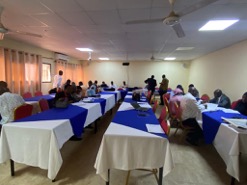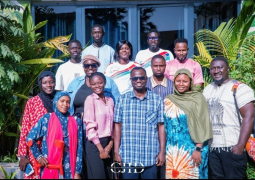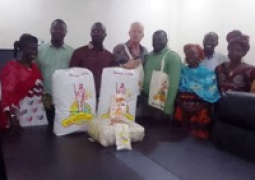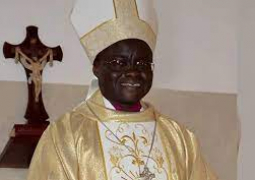
However, the competencies spelt out in the document were developed through the facilitation of NAQAA in collaboration with the Ministry of Higher Education Research, Science and Technology (MOHERST), UNESCO-The Gambia and International Open University-The Gambia.
The document aims to improve Technical and Vocational Education and Training (TVET) trainers’ performance through the development of a competency framework for teachers within the tertiary institutions.
It also meant to ensure responsive curriculum to the labour market; ensure uniformity of skills and knowledge of the same programmes regardless of diverse institutions.
Dr. Gibirl Jaw, executive director of NAQAA said the Competency Framework for TVET trainers will provide guidance, support and recognition for ongoing professional development of teachers at the tertiary and higher education sub-sector.
“The framework described the set of skills, knowledge and value needed for effective planning and facilitation of teaching and learning,” he said.
The document, he added would spell out clearly the competencies, skills and knowledge that all TEVETs trainers must possess to ensure effective teaching in all intuitions to enable graduates deliver well in the labour market.
“Once the document is validated, it would be used to derive what will be taught to the training teachers to be competent once they are in the field,” he said.
He described the document as paramount and justified that it was drafted by well- experienced and experts on education from NAQAA, MOHERST and veteran teachers. However, he said stakeholders will always validate it.
Dr. Jaw further said that, the document would help to regulate teachers in all institutions to ensure effective teaching.He noted that it would be reviewed periodically and amended if necessary.
Anthoney G. Mendy, director of Tertiary and Higher Education at MOHEST said the document would help to define specific role of trainers as well as outline the knowledge the skills trainers are expected to have in order to become highly skilled and professional trainers.
He commended UNESCO for initiating such an important project and the Republic of Korea for funding it. He thanked NAQAA for coordinating the project and providing technical support that ensured successful implementation of the scheme.
Read Other Articles In National News




